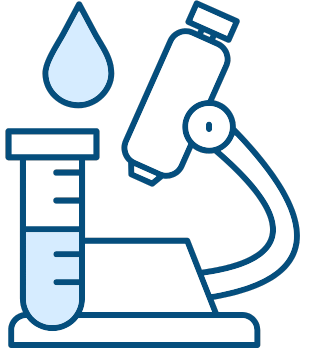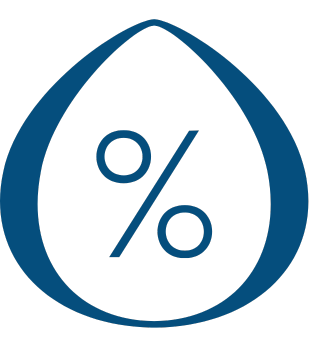The benefits of collagen for our bodies are undeniable. This protein plays a very important role in our body. Acting as a structural material in the body, it not only gives elasticity and strength to the skin, but also maintains the flexibility of the joints and the health of hair and nails. However, as we age, or due to various factors such as poor diet or lifestyle, it can become significantly depleted in the body. In this article, we will look at the benefits and effects of collagen on our bodies and the ways in which it can be maintained at optimum levels. Read on to find out how to maintain the health and youth of your skin for longer.
What is collagen?
Collagen is a filamentous protein produced and synthesised mainly by fibrillar cells in the body. It is one of the main components of connective and epithelial tissues. This structural protein is important for maintaining and strengthening the structure of the skin, bones, tendons, cartilage, blood vessel walls and other body tissues.
Collagen is made up of long chains called tropocollagens, which are joined together to form multiple chains. Collagens come in a variety of types – currently 28 types are known. Type I is the most common. It makes up 90 per cent of all collagen in the human body. Type I protein is responsible for the structure of skin, bones, tendons, blood vessels, organs and gums. Type II is most important for cartilage and joints, while type III is involved in the formation of connective tissues in blood vessels, lungs and organs.
The production of collagen in the body is a complex process that depends on vitamins, minerals and amino acids. Collagen production decreases with age. Over the years, the body’s ability to produce collagen naturally decreases by about 1-1.5%. This leads to wrinkling, dryness and other problems associated with ageing. This is why collagen supplements and cosmetics with collagen have become popular in the beauty industry in recent years, with the aim of maintaining skin elasticity and youthfulness.
What are the benefits of collagen?
The benefits of collagen to the body are manifold, but one of its most important benefits relates to the maintenance and health of the skin. Collagen is a key component of the skin’s structure and contributes to its elasticity and strength. As the body ages, collagen production naturally decreases, leading to wrinkles. The benefits of collagen for the skin are commonly emphasised, which is why collagen supplements and cosmetics have become very popular in recent years.
Another important benefit of collagen is related to joint health. Collagen is an essential component of the tendons and cartilage of the joints, which ensures the mobility and elasticity of joints. Joint diseases such as osteoarthritis can be linked to the loss of collagen in the body. Supplements can help to strengthen joints, reduce pain and inflammation and contribute to the overall health of joints.
Collagen is also important for the health of hair and nails. Taking collagen supplements can have a positive effect on the strength and density of hair, the strength of nails and their overall condition. Collagen also contributes to the health of teeth and gums. In addition, collagen also affects vascular health, organ function and metabolism.
The benefits of collagen for the body are enormous. Nevertheless, it is important to consult a health professional before taking any collagen supplements or other products, as they may not be suitable for everyone. However, many people do notice positive changes when taking collagen, such as improved skin, better hair condition and an overall better well-being.
Ways to help address collagen deficiency
Collagen deficiency can be caused by a variety of reasons – ageing, poor lifestyle, autoimmune diseases or even genetics. Addressing this deficiency is important to maintain the healthy functionality of the body’s tissues and organs. There are several ways in which collagen can be increased in the body:
- Proper nutrition. The body cannot produce collagen efficiently without antioxidants, which is why vitamin C, one of the best antioxidants, is so important for its production. A diet high in protein and vitamins E and A can also support collagen production. Include more red meat, fish, poultry, fresh fruit and vegetables in your diet. Also foods rich in omega-3 fatty acids, which contribute to skin health.
- Intravenous therapy. Intravenous therapy is also an option to replenish the body with collagen and vitamins quickly and efficiently. “At Drops Clinic Family Clinic, we can offer a special set of products to improve the condition of your skin, nails and hair – the “Glamour Therapy”. This is a special formula rich in water-soluble vitamins and minerals that will stimulate collagen production in the body. It is the fastest and most effective way to increase the amount of collagen in the body and a great alternative to not wanting or not being able to take supplements, as the beneficial substances are introduced directly into the bloodstream.
- Supplements. There are a variety of collagen supplements available on the market, including collagen powder, capsules or oral collagen. When taking these supplements, it is important to choose quality products and follow the dosage instructions.
- Regular physical activity. Regular physical activity stimulates blood circulation, improves metabolism and contributes to healthy looking skin. Weight training is particularly effective as it strengthens tendons and cartilage.
- Water. Adequate water intake is also very important, as hydration is essential for the health of the skin and other tissues. Water helps to maintain the elasticity and strength of the skin, which is essential for maintaining the functionality of collagen.
- Sleep. Good quality sleep is also important for maintaining collagen levels in the body. During sleep, the body carries out many repair processes, including the production of collagen. Irregular or insufficient sleep can lead to its deficiency and contribute to premature skin ageing.
If you’re looking for an effective way to boost your body’s collagen production, we’re here to help. Our team is made up entirely of qualified doctors from a variety of disciplines. After listening to your complaints and preferences and conducting thorough tests, they will prepare a personalised treatment plan. Read more about intravenous therapy here.
Collagen is an important component of the body, playing a key role in the health of skin, joints, hair and bones. However, over time, the body’s ability to produce collagen decreases. While collagen supplements are becoming increasingly popular for their ability to contribute to youthful skin, joint flexibility and other important bodily functions, there are many other ways to help the body maintain proper collagen levels.
Frequently asked questions:
Why does collagen decrease in the body?
Many factors contribute to a decrease in the amount of collagen in the body. The most common cause is ageing, as the body’s ability to produce less and less of this protein decreases over time.
Certain other factors can severely reduce the amount of collagen in the body:
- Excessive sugar intake. When you consume too much sugar, it forms new molecules in your blood that can damage nearby proteins, which can include collagen.
- Smoking. Chemicals in tobacco smoke damage the collagen and elastin in the skin.
- Sunlight. Ultraviolet rays stimulate faster breakdown of collagen.
- Autoimmune diseases. Some autoimmune disorders can impair collagen production.
When should I start taking collagen?
It may be useful to start taking collagen supplements at the first signs of ageing or deterioration in your overall skin condition. This is also true for those who suffer from joint pain or want to strengthen their hair and nails. Early use of collagen supplements can help to maintain a better well-being.
However, before starting any supplements, it is important to consult a health professional and assess individual needs to ensure that the product chosen is suitable and safe.
If you suspect that your body is deficient in collagen, contact the medical team at Drops Clinic. They will listen to your complaints and preferences and, after thorough testing, prescribe the most appropriate treatment to help you enjoy a fast and healthy lifestyle.
When should I not take collagen?
Collagen may not be suitable for those who are allergic to it or to any components of collagen supplements. People with impaired kidney function should avoid certain types of collagen. Pregnant or lactating women are advised to consult their doctor before taking collagen supplements. People with chronic diseases or taking certain medications should consult a health professional for possible interaction effects.




